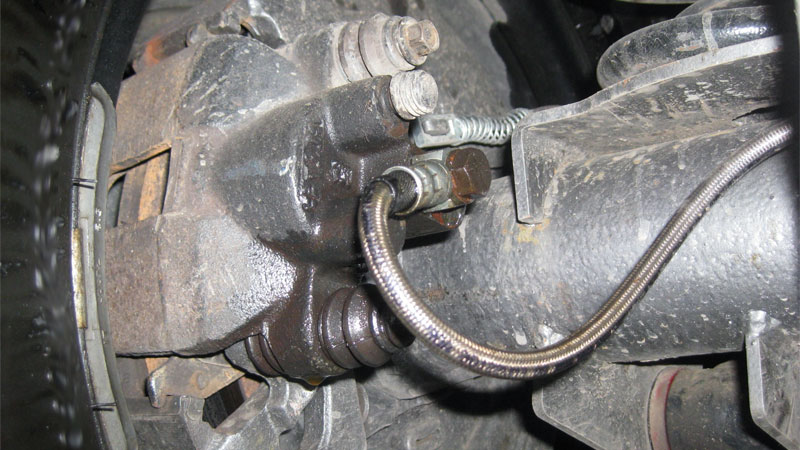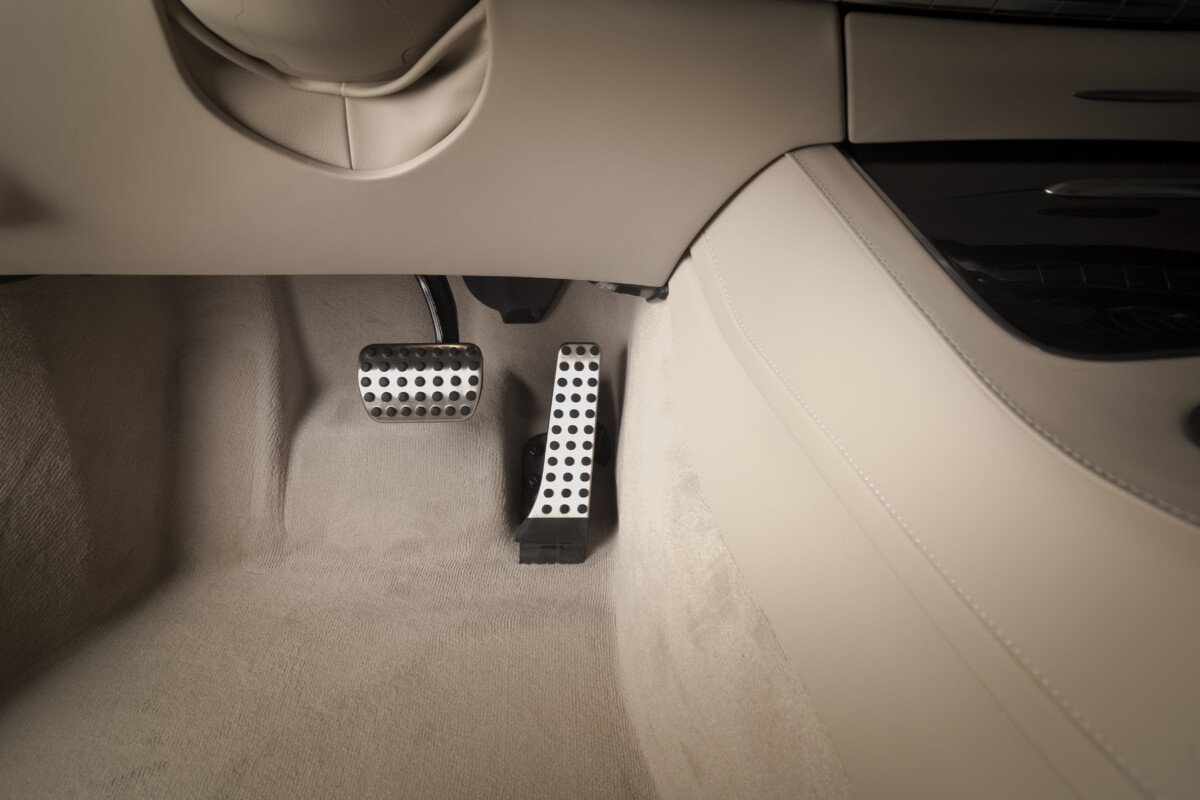You’re cruising down the road, enjoying the open highway. Suddenly, you need to brake, but your foot sinks down and down – all the way to the floor. A wave of cold dread washes over you as you realize you’ve lost your brakes. It’s a terrifying scenario that every driver fears. What just happened? Why did the brake pedal go all the way to the floor? And most importantly, what should you do next?

Image: viewfloor.co
This terrifying experience, known as brake pedal failure, is a serious automotive issue that can quickly become a dangerous situation. While it’s usually not a direct sign of imminent danger, understanding what causes brake pedal failure and how to deal with it is essential for any driver. This article will explore the reasons behind this terrifying situation, offering information and expert advice on how to respond if you ever find yourself in this precarious position.
Understanding Your Brakes: A Primer
To figure out why your brake pedal might be failing, it’s important to understand the basic mechanics of your car’s braking system. Essentially, your brake pedal is linked to hydraulic pressure. When you press the pedal, you’re pushing a piston inside a master cylinder. This piston forces brake fluid through lines to your brake calipers, pushing brake pads against your rotors (or shoes against drums) to create friction and slow the car down.
The Culprits Behind a Plunging Brake Pedal
Several factors can cause your brake pedal to go to the floor, each with its own implications:
1. Brake Fluid Leak: The Silent Threat
One of the most common causes of a soft brake pedal is a leak in the brake fluid line. Brake fluid is essential for maintaining hydraulic pressure. When a leak occurs, pressure drops, causing the pedal to feel spongy or go all the way to the floor.

Image: drivecanvas.com
2. Air in the Lines: A Deceptive Enemy
Air in the brake lines is another culprit. Air is compressible, so when the brake pedal is pressed, the air compresses before the hydraulic pressure can reach the calipers. This results in a spongy, unresponsive pedal. Air can enter the system through a leak, during a brake job, or through a damaged master cylinder.
3. Worn or Damaged Brake Components: The Essential Wear and Tear
Over time, brake components like calipers, pistons, brake pads, and rotors wear down. This wear can lead to a decrease in braking efficiency and a soft pedal. If a brake hose or line is corroded or damaged, it can also lead to a leak and a soft pedal.
4. Master Cylinder Failure: The Heart of the System
The master cylinder is responsible for generating the hydraulic pressure that activates the brakes. If the master cylinder fails, it can result in a complete loss of braking pressure, causing the pedal to go to the floor.
5. Vacuum Booster Malfunction: A Crucial Ally
The vacuum booster is responsible for “assisting” your brake pedal, making it easier to press. If the vacuum booster fails, the pedal will feel stiff and require more force to operate. While it doesn’t immediately mean brake failure, it’s a sign of a serious problem.
What To Do When Your Brakes Fail
If your brake pedal goes all the way to the floor, panic is your worst enemy. Here’s a breakdown of the steps to take:
-
Stay Calm: Panic will only make the situation worse. Take a deep breath and assess the situation.
-
Downshift: Quickly downshift to a lower gear. This will help to slow the car down using engine braking.
-
Pump the Brakes: If you’re moving slowly, you can try pumping the brake pedal. This may help to build up some pressure, allowing you to stop gradually. However, it’s important to know that this likely won’t work if you have a major fluid leak.
-
Engage the Parking Brake: If your brakes still won’t work, use the parking brake or emergency brake to slow your vehicle down. But be cautious when pulling the parking brake, as it can make the car unstable, especially at high speeds.
-
Find a Safe Place to Stop: Look for a safe area to pull off the road, such as a parking lot, a side street, or a shoulder.
-
Call for Help: Once you’ve stopped safely, call for a tow truck to have your vehicle inspected and repaired.
When to Seek Professional Help:
If your brake pedal feels soft, spongy, or goes all the way to the floor, it’s crucial to have your brake system inspected by a qualified mechanic immediately. Don’t wait for a critical failure before seeking professional assessment.
Preventing Brake Pedal Failure Through Routine Maintenance
While it’s impossible to completely avoid brake failure, you can significantly decrease your odds. Here are some tips:
-
Regular Brake Inspections: Have your brakes checked every 6 months or 10,000 miles, or sooner if you notice any changes in brake performance.
-
Replace Brake Pads and Rotors as Needed: Worn brake components lead to decreased braking efficiency and an increased risk of brake failure.
-
Inspect Brake Lines and Hoses: Look for signs of corrosion, damage, or leaking brake fluid.
-
Check Brake Fluid Levels: Regularly check the brake fluid level in the reservoir and top it off if needed.
-
Flush Your Brake Fluid: Brake fluid should be flushed every 2-3 years, or sooner if it’s discolored.
-
Listen to Your Car: Pay attention to any unusual noises, vibrations, or changes in brake performance.
Brake Pedal Going All The Way To The Floor
A Final Thought:
Brake failure can be a terrifying experience, but by understanding the causes and taking the right steps, you can stay safe. Regular maintenance, prompt attention to any signs of brake problems, and a cool head in a crisis are your best defenses against this common but serious automotive concern. Remember, your safety on the road depends on a functioning brake system. So, stay vigilant and make sure your car is always ready to stop when you need it to.





